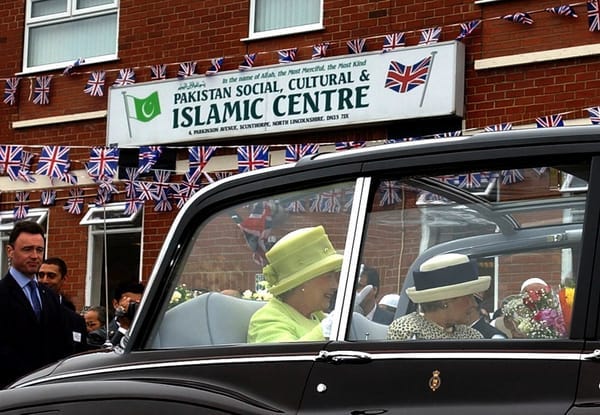How Multiculturalism Broke Britain
In Britain's long-cherished multicultural regime, the grooming gang scandals were inevitable
I have a long essay out today with the good people at Compact. It’s a deep dive into British history after 1945, showing how the country tried to hold its liberal system and multiculturalism together and build a harmonious multi-racial society. Suffice to say, it didn’t work.
In the postwar period, British elites launched a great multicultural experiment, then strove to prove that this system was compatible with Britain’s cherished liberal tradition. This gave birth to modern British exceptionalism: the faith that Britain’s blend of liberalism and multiculturalism uniquely solves the problems of building a multiethnic nation. Unlike Canada’s, Britain’s multiculturalism never had to reckon with a separatist movement. No far-right, anti-immigration party akin to France’s Front National swept into Westminster. And while Britain passed US-style anti-discrimination laws, it avoided the racially charged political debates of American politics. British elites worked hard to achieve this, and successfully marginalized anti-immigration politicians such as Enoch Powell. For years, British elites prided themselves on having removed the sensitive issue of race from partisan politics.
Read the rest at Compact. If paid subscribers run into a paywall, email me at nathan.pinkoski@gmail.com and I’ll be happy to share a pdf.





If you want a multicultural society, you will have to be like Singapore. Harsh penalities, strict enforcement of the law, deportation for foreigners who commit crimes. You need to make it difficult for foreigners to obtain residency visas and citizenship. Moreover you need to deport people who overstay their work visas. That’s it.
I am an American. But I think that although our history is different in important ways from from that of Britain, much of the following argument applies to the US as well. I think we could still have a diverse democracy without going the authoritarian route, theoretically at least. Perhaps there isn't the colective will to tacle this issue sucessfully, but if so then that's really too bad. I guess I'm a bit if an idealist..
But I think that if Britain had not promoted asymmetrical multiculturalism but had instead promoted diversity and equal rights for all but within a system of variable aculteration that gave full respect to the existing dominant British culture (not "race") as the dominant culture, including it's politics and fundemental social values then this wouldn't be the issue it has become. The basic question is this, -is there enough colective will and even thought process for this to occur? And also, is it now too late to sucessfully change? I surely hope not.
Such a system would require no double standards of rights but rather eqaul respect for the rights of all, and a basic acknowledgement that even with respect for diversity, there is alao in fact a dominant culture with it's own internal diversity but also cohesiveness which must also be acknowledged and respected, and that it is based on traditional English culture even if not always of a traditional nature itself. A degree of cultural pluralism is not incompatible with this but the issue is where to draw the limmits. This would of course require things like actual enforcement of immigration laws, limiting legal immigration as needed for the interest of the whole population and not just the elite, and not tolerating certain practices, however traditional they might be to some. Nor can affirmative action or other such double standards be entertained in such a system but anti discrimination and civil rights laws would need to be taken seriously and equally enforced for all.
A dominant culture can and should be flexible, but only up to a point, -and at least England does have (or at least did in the recent past) much more of a true dominant vernacular culture (frayed as it may be) then in the United States, which has always been more culturally divided in some basic respects then England itself (and this is even more true within Scotland, within Wales etc.) It is however an open question if sustainable limmits for such a system can be agreed apon however. It's fundementally a slippery slope sort of situation one could argue.
Such a more sustainable liberal multiculturalism should not be taken to mean supremacism or chauvinistic nationalism, but rather indeed a civic nationalism that is still centered on a culture, with limmits and respect for that dominant culture. This would mean that minority cultures cannot be actively promoted by the government except to protect their rights as indeviduals, but nor should they be suppressed as long as they are not incompatible with the fundemental values of the dominant culture. Acculturation and assimilation should be gently encouraged but never forced, and would then happen naturally over time but not fully so for everyone, and that would be okay. Indeed this is mostly what happens today, -there are just far too many exceptions at presant. But this would of course require a fundemental respect for the existence and importance of there in fact being a dominant culture(!) and also an acknowledgement that this dominant culture (like any other) is often flawed and can and should evolve over time, but that such evolution is not without limmits. Is this asking too much? Again, I sure hope not!